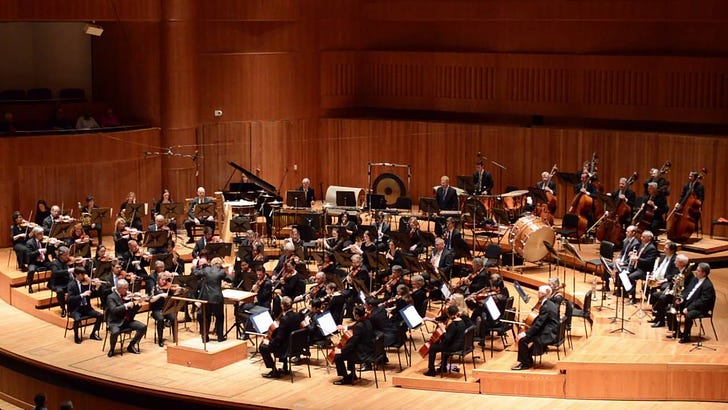“Why No Great Women Composers?”
This is the title of an article published in the Music Educator’s Journal in 1940. I read it as an undergraduate and was incensed in a way I could not articulate back then. When I saw a mention of it recently, I was incensed all over again. I am older and louder now.
First: why don’t we call all those individuals who compose music “composers?” Eighty-four years later, when we see advertising and programs containing their work, they are “woman composers” or “female composers.” Why haven’t we referred to “man composers” or “male composers” for all these centuries? Kind of a rhetorical question but not really. Shouldn’t we be long past this by now? When an organization or ensemble programs work by a woman these days, they often make a big diversity deal out of it. Like it’s an unusual thing that needs to be highlighted. It needs to be no big deal. News flash: there are, and always have been ”great women composers.” And while we’re at it, one or two BIPOC and LGBTQ+ people get thrown into the mix, and ta-da! We’re diverse! But for the moment, let’s stick with the duality genderizing thing.
In Carl Seashore’s world during the first half of the 20th Century, women were just twenty years past getting the right to vote. (Seashore, 1866-1949, was an early psychologist. He influenced the fields of music psychology, aesthetics, and music education with lasting effects to this day. More on him in upcoming blogs). I wasn’t around yet, but my foremothers were busy undoing all those presuppositions about women in careers and occupations. Women were seen this way by Seashore and the rest of the male-oriented culture in terms of their presence in academia: “…when a woman of marked achievement and fine personality is invested with the doctor's hood, there is a young man around the corner: we hear the wedding march, love's goal is reached, and the promising Ph.D. settles down and gets fat.”
OMG. I can’t even.
Seashore ignited something of a research and commentary theme about why genius women composers simply did not (or could not) exist. This went on well into the 1990s. What’s fascinating and infuriating is that the scholarship examined the issue with this assumption: the problem was with women themselves! It had to be! Something mysterious and inherent in women caused us to lack the ability to compose, to comprehend a big orchestra, to create music for such a complex ensemble. Why has the repertoire of concert programs been consistently 99-100% male forever? What was getting in the way of women writing great music?
Oh, could it have something to do with the pervasive misogynistic, patriarchal culture that has been in place for millennia? Of course women were writing and performing music--we’ve been doing it all along. But men took no notice, all the while discriminating, criticizing, downplaying and dismissing the musical work and accomplishments of women. In 1940, men congratulated themselves for even posing the question: why aren’t there any great women composers? Consider this Seashore quote: “Will the emancipated woman who smokes, dons mannish attire and manners, takes marital obligations lightly, is athletic and competes freely with men in business, politics and professions, pave the way for great composers?” Sounds like Seashore accidentally wandered into a women’s music festival. (IYKYK)
According to him, if women decided to act like men, that would give us a leg up on composing music. That would be the main requirement, trying to be like men. Right? There’s so much to unpack here, as they say.
I shouldn’t have to mention why all this continues to matter. We don’t have to look much further than the current cultural, societal, and political climate. Women are lesser if they, for whatever reason, do not have children. Seashore’s conclusion, in 1940, was that “Married women may not have produced great compositions, but they have produced their composers.” In other words, we’re not going to be the next Beethoven, but one of us might be his mother. And that, according to some, is the whole purpose of being a woman.
I think childless cat ladies might have lots to say about this. I’m sure there must be a few great composers among them.
I’ll leave you with this: Fanfare for the Uncommon Woman #6, by Joan Tower, “widely regarded as one of the most important American composers living today.”





Preach!!